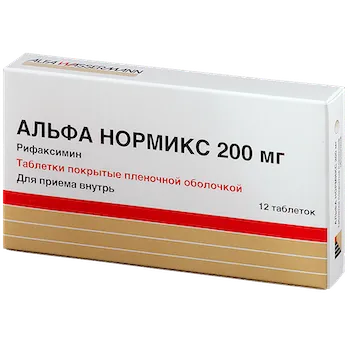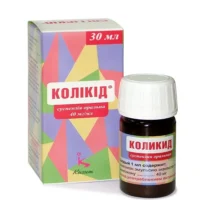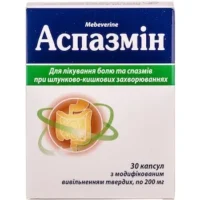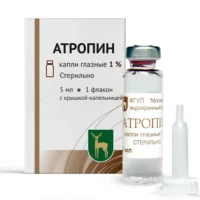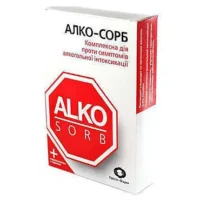Description
Alfa Normix Coated Tablets 200 mg. №12
Ingredients:
Each coated tablet contains 200 mg of rifaximin as the active ingredient.
Mechanism of Action:
Rifaximin, a derivative of rifamycin, works by inhibiting bacterial RNA synthesis, thereby disrupting protein production and ultimately leading to the death of susceptible bacteria.
Pharmacological Properties:
Rifaximin exhibits broad-spectrum antibacterial activity against Gram-positive and Gram-negative bacteria. It is minimally absorbed in the gastrointestinal tract, resulting in high local concentrations in the gut.
Indications for Use:
Alfa Normix is indicated for the treatment of travelers’ diarrhea caused by non-invasive strains of Escherichia coli.
Contraindications:
Avoid using Alfa Normix if you have a known allergy to rifaximin or any other components of the tablets. Consult your healthcare provider before starting treatment if you have severe hepatic impairment.
Side Effects:
Common side effects of Alfa Normix may include abdominal pain, flatulence, and headache. In rare cases, hypersensitivity reactions such as rash or angioedema may occur. Discontinue use and seek medical advice if you experience severe or persistent adverse effects.
Usage Instructions:
For adults, the recommended dosage is one 200 mg tablet taken orally three times daily. Swallow the tablet whole with a full glass of water. Do not crush or chew the tablet.
Benefits Compared to Analogues:
Compared to traditional antibiotics, rifaximin offers the advantage of limited systemic absorption, reducing the risk of systemic side effects and allowing for prolonged use in chronic gastrointestinal conditions.
Suitable Patient Groups:
Alfa Normix is generally safe for use in adults, including the elderly. However, caution is advised in pregnant or breastfeeding women, and dosage adjustments may be necessary in patients with hepatic impairment.
Storage and Shelf Life:
Store Alfa Normix in a cool, dry place away from direct sunlight. Keep the tablets in their original packaging to protect them from moisture. Check the expiration date on the packaging and do not use the product beyond that date.
Packaging Description:
Alfa Normix Coated Tablets are supplied in blister packs containing 12 tablets. Each tablet is individually coated to ensure stability and protection from environmental factors.
Scientific Evidence:
Rifaximin has been extensively researched for its efficacy in gastrointestinal conditions. Studies published in reputable journals such as the Journal of Gastroenterology have demonstrated the effectiveness of rifaximin in reducing symptoms of irritable bowel syndrome with minimal systemic absorption, highlighting its safety profile for long-term use.
Additional Information:
Completing the full course of treatment with Alfa Normix is crucial for optimal outcomes. If you encounter severe side effects or signs of an allergic reaction, discontinue use and seek immediate medical attention. Prior consultation with a healthcare provider is recommended before initiating treatment, especially for individuals with specific medical conditions or during pregnancy and lactation.

